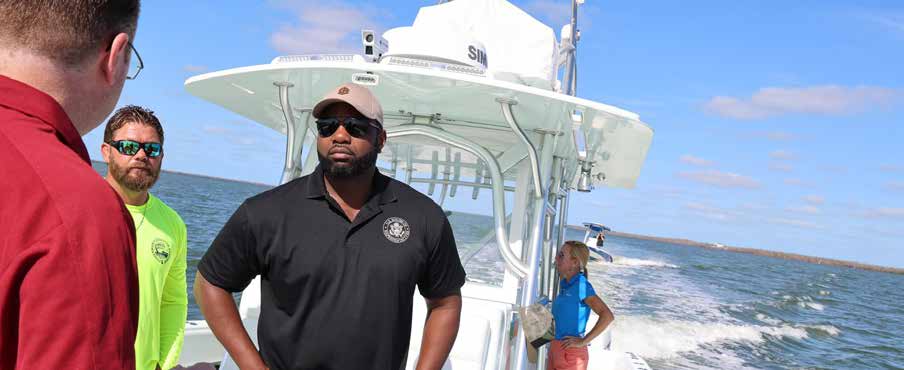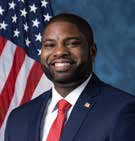from the desk of Representative Byron Donalds
Tackling The Threat Of Harmful Algal Blooms In Our Southwest Florida Community

Water is Florida’s most important natural resource and serves as the heart and soul of our Southwest Florida community. Every day, nutrient-filled water flows into Lake Okeechobee and is subsequently discharged throughout East, West and South Florida––ultimately resulting in poor water quality and the outbreak of harmful algal blooms. Throughout the 118th Congress, I am proud to have introduced various commonsense, bipartisan legislative solutions to directly assist Southwest Florida and other similarly affected communities throughout our nation.
The first water quality bill I introduced this Congress is H.R. 325–“The Harmful Algal Bloom Essential Forecasting Act.” By definition, this bill requires the “Harmful Algal Bloom Operational Forecast System” to continue to operate during a government shutdown by designating certain services related to the system as excepted services under the Anti-Deficiency Act.
In other words, this bill utilizes federal resources for tackling the environmental and economic challenges brought on by harmful algal blooms in Southwest Florida and throughout America. Over the last sixty years, these events have increased substantially––impacting local economies, our nation’s ecosystems, and the American people’s health. Safeguarding public health and our coastal ecosystems requires the collective collaboration of federal, state, and local governments. This necessary legislation bolsters the federal government’s role in combating harmful algal blooms throughout the United States by ensuring that during a lapse in appropriations, essential services relating to harmful algal blooms receive critical federal funding.
I then introduced, H.R. 873 – “The Water Quality and Environmental Innovation Act.” This bipartisan piece of legislation repurposes unused federal dollars and transfers those funds to the EPA’s “Water Quality and Environmental Innovation Fund” for grants and contracts to carry out projects. These projects will either use emerging technologies to address threats to water quality, or fund the research, development, and design of such technologies. Threats to water quality that may be addressed under a project carried out using a grant or contract may include acidification; the accumulation of plastics, trash, and microplastics; hydrologic alterations such as restricting tidal flow; nutrient release and eutrophication including harmful algal blooms; sea-level rise; waste carbon dioxide accumulations; adverse soil health conditions; erosion and sedimentation; karst, sinkholes, and land subsidence.
We know all too well that the threat of harmful algal blooms is a bipartisan challenge that must be addressed in our community. This practical bill is a commonsense measure that promotes efficiency by turning unused government waste into environmental restoration. I am proud to introduce this bill on a bipartisan basis to directly assist Southwest Florida and communities throughout our country.
Furthermore, I introduced H.R. 1008 – “The Combat Harmful Algal Blooms Act.” This bill too received strong bipartisan support and allows for the inclusion of algal blooms within the federal definition of a “Major Disaster.” It also directs the CDC to submit to specified congressional committees, a detailed study relating to the health effects of exposure to cyanotoxins in the air that result from algal blooms. State and local leaders would be empowered with the opportunity to request federal funding to protect their waterways for future generations as a result of this legislation.
I’m committed to advancing bipartisan and commonsense legislative solutions that promote the preservation of our waterways against the potential long-term damage resulting from harmful algal blooms.
As your Congressman, you have my commitment to work on your behalf and restore order and proper governance to The People’s House.
CONTACT MY OFFICE
Collier County Office
3299 Tamiami Trail East, Suite 105, Naples, FL 34112
Phone: 239.252.6225
Washington, DC Office
1719 Longworth House Office Building, Washington, DC 20515
Phone: 202.225.2536




Leave a Reply
Want to join the discussion?Feel free to contribute!